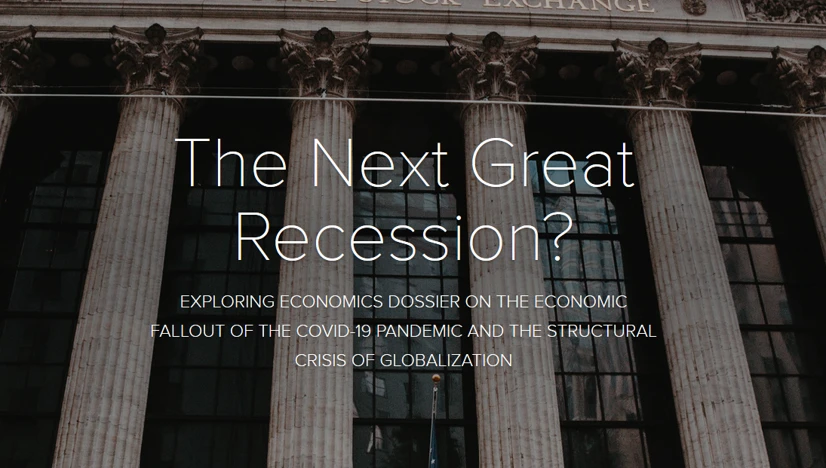Exploring Economics
,
2020
Exploring Economics Dossier on the economic fallout of the COVID-19 pandemic and the structural crisis of globalization
We are experiencing a time of multiple, historical crises. The Great Recession from 2007-2009 was the biggest economic slump since the Great Depression of 1929, followed by a sovereign debt crisis and a crisis of the European currency area, as well as persistent crisis symptoms in emerging economies. Despite the historically unprecedented monetary expansion, growth has remained amorphous and unstable in the years since the financial crisis. At the same time, the economic crisis was followed by a profound political crisis of globalization. Decades of growing inequality and a lack of economic and political pluralism favoured to the rise of the extreme right, with the election of Donald Trump and the Brexit vote as the clearest signs of this. The economic conflicts and disintegration tendencies increased and, together with a possible end to the central banks' zero-interest policy, led to a renewed debate about another major economic crisis. And finally, the ecological crisis of globalization became increasingly evident, with heatwaves and extreme weather events around the globe. COVID-19 encounters a structural crisis of globalization and the economic system that drives it, with an uncertain outcome. We asked economists worldwide to share with us their analysis of current events, long-term perspectives and political responses. The dossier will be continuously expanded.

Steve Keen
Mainstream economics fails when confronted with the covid-19-pandemic. Mainstream economics has propagated the dismantling of the state and the globalization of production - both of which make the crisis now so devastating. More fundamentally, it deals with market systems, when what is needed to limit the virus’s spread is a command system.
Read more
Jack Rasmus
The Great Recession 2.0 is unfolding before our very eyes. It is still in its early phase. But dynamics have been set in motion that are not easily stopped, or even slowed. If the virus effect were resolved by early summer—as some politicians wishfully believe—the economic dynamics set in motion would still continue.
Read more
Hannes Böhm and Netzwerk Plurale Ökonomik
We collect currently discussed policy proposals and provide you with links to understand & learn about these proposals. We start with general ideas, ideas for countries of the Global South and proposals that have been made for the European Economy but could also inspire other countries.
Jacob Schäfer
With the onset of an economic crisis that has been universally acknowledged since the end of March, two main questions arise: To what extent is the corona pandemic the starting point (or even the cause) of this crisis? And secondly: can the aid programmes that have been adopted prevent a deep and prolonged recession?
Read more
Radhika Desai
It is perhaps fitting that the seriousness of the coronavirus threat hit most of the Western world around the Ides of March, the traditional day of reckoning of outstanding debts in Ancient Rome. After all, problems and imbalances have accumulated in the Western capitalist system over four decades, ostensibly since it took the neoliberal road out of the 1970s crisis and kept going along it, heedless of the crises and problems it led to.
Read more
Jayati Ghosh
How long the COVID-19 crisis will last, and what its immediate economic costs will be, is anyone's guess. But even if the pandemic's economic impact is contained, it may have already set the stage for a debt meltdown long in the making, starting in many of the Asian emerging and developing economies on the front lines of the outbreak.
This material has been suggested and edited by:


